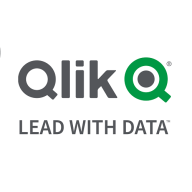

Qlik Replicate and IBM Cloud Pak for Data both compete in the data integration and management space. Qlik Replicate seems to have the upper hand due to its strong real-time data capture and replication capabilities.
Features: Qlik Replicate is noted for its real-time change data capture, seamless data replication without impacting source databases, and strong data manipulation capabilities. It also offers easy data integration across various endpoints with robust logging functionalities. IBM Cloud Pak for Data stands out with advanced data preparation, AI integration through Watson Studio, and strong data governance via Knowledge Catalog. Its data virtualization feature enables efficient data analysis and connection to multiple data sources.
Room for Improvement: Qlik Replicate could enhance error message clarity, user interface, and connectivity with multiple data destinations. It also requires improvements in support services and API handling. IBM Cloud Pak for Data needs a more streamlined setup and deployment process, expanded connector availability, and better handling of heavy infrastructure demands. Enhancements in performance and support for diverse connectors are also necessary.
Ease of Deployment and Customer Service: Qlik Replicate functions well across public and on-premises environments and is generally praised for proactive support, though response times can improve. IBM Cloud Pak for Data primarily supports public and hybrid clouds but faces challenges with its user interface and infrastructure needs. Its customer service requires quick and decisive improvement.
Pricing and ROI: Qlik Replicate is viewed as costly for small businesses, with a core-based licensing model favoring large data sets but discouraging smaller deployments. Despite high costs, it offers ROI through reduced database usage and maintenance. IBM Cloud Pak for Data targets larger enterprises with high costs linked to advanced functionalities like AI, and is regarded as complex in pricing, yet it promises ROI via time-saving and operational efficiency.
| Product | Market Share (%) |
|---|---|
| Qlik Replicate | 2.3% |
| IBM Cloud Pak for Data | 1.8% |
| Other | 95.9% |


| Company Size | Count |
|---|---|
| Small Business | 7 |
| Large Enterprise | 8 |
| Company Size | Count |
|---|---|
| Small Business | 9 |
| Large Enterprise | 10 |
IBM Cloud Pak® for Data is a fully-integrated data and AI platform that modernizes how businesses collect, organize and analyze data to infuse AI throughout their organizations. Cloud-native by design, the platform unifies market-leading services spanning the entire analytics lifecycle. From data management, DataOps, governance, business analytics and automated AI, IBM Cloud Pak for Data helps eliminate the need for costly, and often competing, point solutions while providing the information architecture you need to implement AI successfully.
Building on the streamlined hybrid-cloud foundation of Red Hat® OpenShift®, IBM Cloud Pak for Data takes advantage of the underlying resource and infrastructure optimization and management. The solution fully supports multicloud environments such as Amazon Web Services (AWS), Azure, Google Cloud, IBM Cloud™ and private cloud deployments. Find out how IBM Cloud Pak for Data can lower your total cost of ownership and accelerate innovation.
Qlik Replicate is a data replication solution for replicating data from one source database to another for business intelligence software. It offers data manipulation and transformations, replication without impacting source databases, and ease of use without needing ETL. The solution is stable and user-friendly, with detailed logging and support.
Qlik Replicate has improved the organization by allowing each team to replicate their data into a single-source data location. The most important feature of Qlik Replicate is its ability to replicate and update records without needing a programmer.
We monitor all Data Integration reviews to prevent fraudulent reviews and keep review quality high. We do not post reviews by company employees or direct competitors. We validate each review for authenticity via cross-reference with LinkedIn, and personal follow-up with the reviewer when necessary.